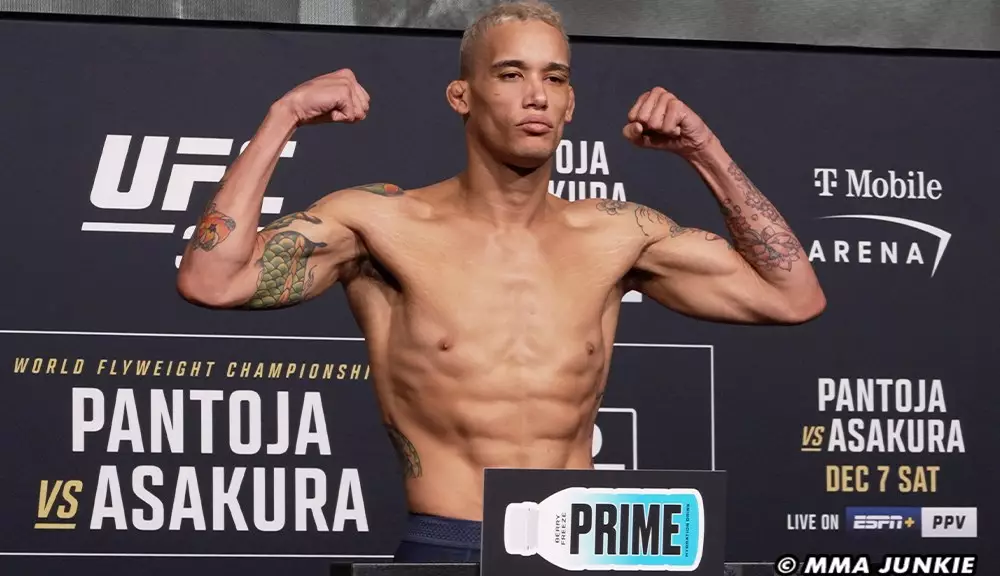In the high-stakes arena of professional mixed martial arts (MMA), maintaining the correct weight can make or break a fighter’s career. This was starkly illustrated during the weigh-ins for UFC 310 in Las Vegas. Bryan Battle, a former winner of “The Ultimate Fighter” reality series, found himself four pounds over the welterweight limit, weighing in at 175 pounds. His failure to make the required weight not only puts his upcoming fight against Randy Brown in jeopardy but also raises significant questions about the physical and mental pressures fighters endure.
Missed weight incidents aren’t rare in the UFC. Battle’s struggle marks his second weight miss since May 2023, which speaks volumes about the rigorous demands faced by fighters. Their professional livelihoods are wrapped up in handling not just the technical aspects of fighting but also the biological realities of weight management. The failure to meet weight can lead to postponed fights, financial penalties, and the loss of respect among peers—factors that extend beyond the scales.
While Battle’s situation cast a shadow over the weigh-ins, the event was not devoid of positive performances. Notably, both Alessandre Pantoja and Kai Asakura made their designated weights perfectly, both clocking in at 124.5 pounds for their flyweight title bout. Ian Machado Garry and his opponent, Shavkat Rakhmonov, also hit their mark, weighing in at a respectable 171 pounds for what promises to be an electrifying welterweight title eliminator.
Such successes emphasize the level of discipline and dedication required to perform in the UFC. For many fighters, making weight is a non-negotiable aspect of the game, integral to engaging in the thrilling battles that fans desire. With so much at stake, the discipline to maintain one’s weight class often stands as a testament to a fighter’s professional prowess.
The implications of missing weight stretch far beyond immediate concerns. Bryan Battle’s failure to recalibrate and attempt a second weigh-in—often a last-ditch effort by fighters—points to an all-too-common narrative of struggle and strain in the sport. When fighters miss weight, it doesn’t just impact their current bout; it can sour future opportunities, wreck training camp preparations, and even alter fight promotions’ views on their professionalism.
The complexity of the weighing process also presents a psychological burden. Fighters, like Anthony Smith, who initially weighed in over the limit at 207.5 pounds but managed to drop back to 205.5 pounds, experience a profound weight of pressure—not only physically but mentally, as they push their bodies to extreme limits, often compromising health for the sake of their career.
As UFC 310 nears, the focus will inevitably shift back to the fights rather than weight controversies. Yet, the struggle against weight remains an essential narrative in combat sports. Factors such as mental health, nutrition, and holistic approaches to training are increasingly coming to the forefront to address these challenges. As fighters seek to not only perform but thrive, finding a balance between physical prowess and optimal health will be crucial for present and future competitors in the unpredictable realm of MMA.

